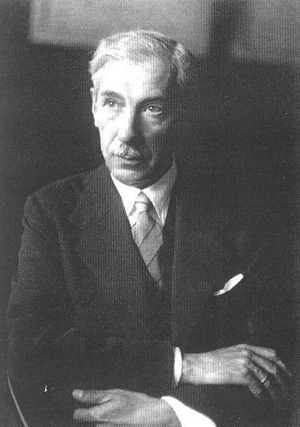Eugeniusz Kwiatkowski
 Eugeniusz Kwiatkowski was born in 1888 in Krakow. He was an outstanding politician of the Second Republic of Poland, a builder of a free Poland, implementing investment programs in the industry and the maritime economy. He was also the author of the concept of development of Poland post-1945 as the country of liberal democracy. His idea of democracy had become the basis for the construction of various types of formations and social initiatives.
Eugeniusz Kwiatkowski was born in 1888 in Krakow. He was an outstanding politician of the Second Republic of Poland, a builder of a free Poland, implementing investment programs in the industry and the maritime economy. He was also the author of the concept of development of Poland post-1945 as the country of liberal democracy. His idea of democracy had become the basis for the construction of various types of formations and social initiatives.
He began his career in Lublin Municipal Gasworks. When the war broke out he joined the Legions. In 1919 he became the head of the department of chemical section of the main supply company to the Army in Warsaw. In 1920-1921 he worked in the Ministry of Industry and Trade and as a lecturer in chemistry at the Warsaw Polytechnic. As Minister of Industry and Trade had set as the main objective building a port in Gdynia. Breaking the deadlock in the French-Polish consortium he was responsible for the construction agreements with many coal corporations. During that time there arose 3 companies: Marine Poland, Polbryt and PTTO. This project becomes the largest investment of the time. In 1930, he leaves the position of Minister and covers the position of chief executive in Nitrogen Compounds Plant in Chorzow.
In 1935, he became Minister of Treasury and Deputy Prime Minister responsible for economic affairs. With energy he organizes the Office of Planning in many places of investments including the Central Industrial District, Investments in Mielec, Lublin and Starachowice and contributes to strengthening the industry in Poland. In 1939-1945 Eugeniusz Kwiatkowski was interned after crossing the Romanian border. He comes back after the invitation from Polish President Bierut. In 1945-1948 he was the Government Delegate to the Coastal Affairs, whose aim was the recovery of the Coast. This project emphasizes the great role of the emerging universities in Gdansk and Szczecin. Eugeniusz Kwiatkowski in the years 1945 to 1948 restored the building of the School of Maritime Trade, which gave the possibility of the practical operation of the university. He was a proponent of its establishment, and one of the first professors, and the contributor to the creation and development of scientific disciplines which constituted the core of the scientific activities of the Department of Economics of Maritime Transport. He was a man of views, supporting the idea of building a strong state with a decent position in Europe, and his political guidance was political independence from Russia and Germany and development at the north-south axis, according to the directions of logistics beyond the control of relations with eastern and western neighbors. He also supported the construction of canals connecting the Oder with the Vistula, railways linking north and south of the country, further leading to the Balkan states, while in favor of carrying out the trench and the Vistula Spit Elblag connection with the Baltic. Such a project was developed at the Technical University of Gdansk in 1945 at the request of Eugeniusz Kwiatkowski. From 1946 he had lectures in Higher School of Maritime Trade.
When he was forbidden to stay on the Coast, in Warsaw and Poznań, he moved to Cracow. In 1974 he received an honorary doctorate degree in economics at the University of Gdansk for his contribution to the development of Polish maritime economy and the general theory of economics. Soon after, died in Krakow.







